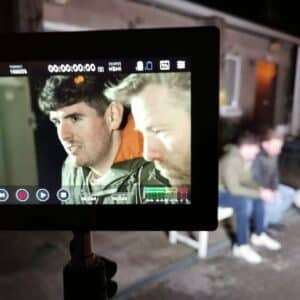The Fulbright Awards Roadshow is currently touring virtually through Irish universities featuring representatives of The Fulbright Commission Ireland showcasing the awards that are available and how those interested should approach the application stage. If you were wondering what are the Fulbright Irish Awards, we’ve gathered the relevant information for you to get you up to speed.
Every year, as part of the Fulbright Program, the Fulbright Irish Awards provides opportunities for Irish students, academics and professionals to undertake programmes and collaborate with U.S. academic institutions or organisations.
The Fulbright Program was set up by Senator J. William Fulbright in 1946 and exists as the largest U.S. international exchange program in the world. The Program offers opportunities for students, scholars, and professionals to undertake postgraduate study, research, and teaching in 155 countries all over the world
The Fulbright Program in Ireland was first established in 1957 and was then administered by An Bord Scoiláireachtaí Cómhalairte (The Scholarship Exchange Board) until 1988, when a bilateral agreement between Ireland and the U.S was signed and in 1991 the Ireland-United States Commission for Educational Exchange (The Fulbright Commission) was established.
The Irish Awards are issued by the Fulbright Commission in Ireland, with a mission to “fortify Irish and American collaboration through exchanges of talent, knowledge and scholarship.”
Currently, there are five types of Fulbright grants available to Irish citizens:
- Fulbright Irish Student Awards – enabling postgraduate research / enrol in postgraduate degree programs in the U.S.
- Fulbright Irish Scholar Awards – enabling academic or professional research / lecturing in the U.S.
- Fulbright Irish TechImpact Awards – enabling academic or professional research in the U.S.
- Fulbright Irish FLTA Awards – enabling teaching the Irish language in the U.S.
- Fulbright Irish Schuman Awards – enabling graduate & postgraduate study, research & lecturing in the U.S.
The Awards are open to all disciplines and backgrounds. Successful candidates receive a stipend, travel costs, accident and emergency insurance, visa administration, cultural and professional programming, and an introduction to an international professional and academic network.
Let’s take a closer look at each Awards category:
Grants in ALL DISCIPLINES to complete postgraduate research or study in the U.S. for a minimum period of 4 months. Applicants can do a full PhD or Masters in the U.S. or portion of an Irish postgraduate degree*. The following sponsored awards are also available: – Fulbright-Creative Ireland Museum Fellowship: Exploratorium – Fulbright-Creative Ireland Museum Fellowship: Harry Ransom Center – Fulbright-Creative Ireland Museum Fellowship: Smithsonian – Fulbright-Enterprise Ireland Award in Innovation – Fulbright-EPA Award in Water, Climate and Environmental Sustainability – Fulbright-GSI Award in Geoscience – Fulbright-Teagasc Award in Agriculture, Food, and Forestry – Fulbright-Notre Dame Law School Student LL.M. – Fulbright-Maurer School of Law LL.M. *Fulbright Funding is for max 1 year. Additional funding must be sourced for degree-courses exceeding this period.
Grants in ALL DISCIPLINES to complete postdoctoral / professional research or lecturing in the U.S. These awards are open to scholars and non-academics with 5+ years of experience in their field. The minimum grant period is 3 months and the maximum is 1 year.
The following sponsored awards are available: – Fulbright-Creative Ireland Professional Fellowship Award – Fulbright-Enterprise Ireland Award in Innovation – Fulbright-EPA Award in Water, Climate and Environmental sustainability – Fulbright-GSI Award in Geoscience – Fulbright-HRB HealthImpact Award – Fulbright-National University of Ireland Scholar Award
Grants to complete postdoctoral or professional non-commercial based research on the impact and application of ICT across all disciplines for 2 weeks-3 months. Preference will be given to candidates who have received their PhD since 2015. The TechImpact Cybersecurity Award is for a period of 2-3 months. – Fulbright TechImpact Award – Fulbright TechImpact Cybersecurity Award to Boston College
Grants to teach the Irish language and take courses at a U.S. college/university for a period of 10 months.
Grants for students or professionals to conduct graduate and postgraduate study, research, and lecturing in the U.S. in the fields of U.S.-EU relations, EU policy, or EU institutions. Grants for professionals in international education administration for research in the field of international higher education administration.
The Fulbright-Schuman Innovation Grants are also available, these grants are designed to support work that can create better transatlantic understanding of issues at the heart of the U.S.-EU relationship, particularly at the intersection of policy and technology.
There are Fulbright Ambassadors at 19 Higher Education Institutions around Ireland, offering on-campus advice to applicants. They are currently listed as
- Athlone Institute of Technology: Luke Geever
- Carlow Institute of Technology: Trina Rea
- Cork Institute of Technology: Michael Murphy
- Dublin City University: Donal Fitzpatrick
- Dundalk Institute of Technology: Caroline Sheedy
- Galway Mayo Institute of Technology: Katharine West
- Institute of Technology Sligo: Martin Roper
- Limerick Institute of Technology: Daragh Naughton
- Marino Institute of Education: Madeleine Ni Ghallchobhair
- Mary Immaculate College: Vicky Brady
- Maynooth University: Catherine Leen
- National College or Art and Design: Rachel O’Dwyer
- National University of Ireland Galway: Ruth Melia
- Queens’s University Belfast: Roisin Hyde
- Royal College of Surgeons in Ireland: Helen French
- Technological University Dublin: Liz O’Sullivan
- Trinity College Dublin: Áine Ní Shúilleabháin
- University College Cork: Colin Bradley
- University College Dublin: Francesco Pilla
- University of Limerick: Jean McCarthy
- Ulster University: Art Hughes
- Waterford Institute of Technology: Anne Graham Cagney
The Commission also provides non-Fulbright grants for undergraduate students to travel to the U.S.
- Summer Institutes for European Student Leaders for undergraduate students
Fulbright Irish Awards Application Process
There are four stages to the Fulbright Irish Student and Scholar Award Application process:
- Pre-screen staff review: Immediately after the application deadline, all applications are checked for completeness, eligibility and discipline areas by Fulbright staff.
- Review: Each application is assigned to three Reviewers based on discipline fit. Application review will comprise of average scores, recommendation and comments. This panel evaluates applications for Academic Achievement To-date, Project Statement (60%), Requirement to be US Based and Fulbright fit (leadership and cultural engagement) (40%). A minimum threshold will be established based on standard of applications each cycle.
- Interviews: The Interview shortlist is compiled based on review panel scores. The Interviewer Panel meets in person to interview each candidate for approximately 25 mins. This panel evaluates applications for Project Statement (explained in a non-expert manner) and Academic Achievement to-date (40%), Applicant Fulbright Fit (cultural engagement and Leadership and Impact (60%). Final recommendations will be made by the Interview panel based on Interview scores and, where relevant Review comments or scores.
- Final Selection: Principle and alternate candidates are chosen by the Commission Awards Committee after review of recommendations, scores and comments compiled by the Interview panel. This may also include other data gathered at the Review stage of the selection Commission Board approves or adjusts recommendations. US Fulbright Foreign Scholarship Board make final approval.
A number of webinars are available to watch on Fulbright Ireland’s YouTube channel.
The worldwide purpose of the Fulbright Program is to increase mutual respect and understanding between people of the United States and people of other countries through educational and cultural exchange.
The Fulbright Program awards approximately 8,000 grants annually. Roughly 2,000 U.S. students, 4,000 foreign students, over 800 U.S. scholars, and 900 visiting scholars receive awards, in addition to several hundred teachers and professionals.
Currently, the Fulbright Program operates in over 160 countries worldwide.
Read the Commission’s 2020 Annual Report
Sources












Comments